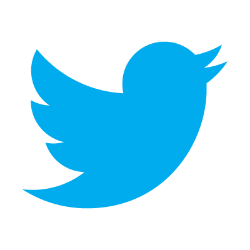Mental health challenges are thought to afflict around 10% of the global population each year, with many going untreated due to stigma and limited access to services. Here, we explore trends in words and phrases related to mental health through a collection of 1- , 2-, and 3-grams parsed from a data stream of roughly 10% of all English tweets since 2012. We examine temporal dynamics of mental health language, finding that the popularity of the phrase 'mental health' increased by nearly two orders of magnitude between 2012 and 2018. We observe that mentions of 'mental health' spike annually and reliably due to mental health awareness campaigns, as well as unpredictably in response to mass shootings, celebrities dying by suicide, and popular fictional stories portraying suicide. We find that the level of positivity of messages containing 'mental health', while stable through the growth period, has declined recently. Finally, we use the ratio of original tweets to retweets to quantify the fraction of appearances of mental health language due to social amplification. Since 2015, mentions of mental health have become increasingly due to retweets, suggesting that stigma associated with discussion of mental health on Twitter has diminished with time.
翻译:据认为,每年全球约10%的人口都面临心理健康挑战,其中许多人由于耻辱和获得服务的机会有限而得不到治疗。在这里,我们通过收集2012年以来大约10%的英文推文的数据流,从大约10%的英文推文中提取了1-、2-和3克的字句,探讨与心理健康有关的言词和词句的趋势。我们研究了心理健康语言的时间动态,发现2012年至2018年期间“心理健康”这一短语的受欢迎程度增加了近两个级别。我们注意到,“心理健康”这一短语的受欢迎程度在2012年至2018年期间增加了近两个级别。我们注意到,“心理健康”这一短语的受欢迎程度因心理健康意识运动而每年和可靠地上升,以及大规模枪击、名人因自杀而死亡以及描述自杀的流行小说故事的不可预知反应。我们发现,含有“心理健康”的信息在增长期保持稳定,但其真实性水平最近有所下降。最后,我们使用原始的推文与retweet的比,以量化由于社会放大而出现的心理健康语言外观的一小部分。自2015年以来,关于心理健康的提法则日益成为累记的原因。



